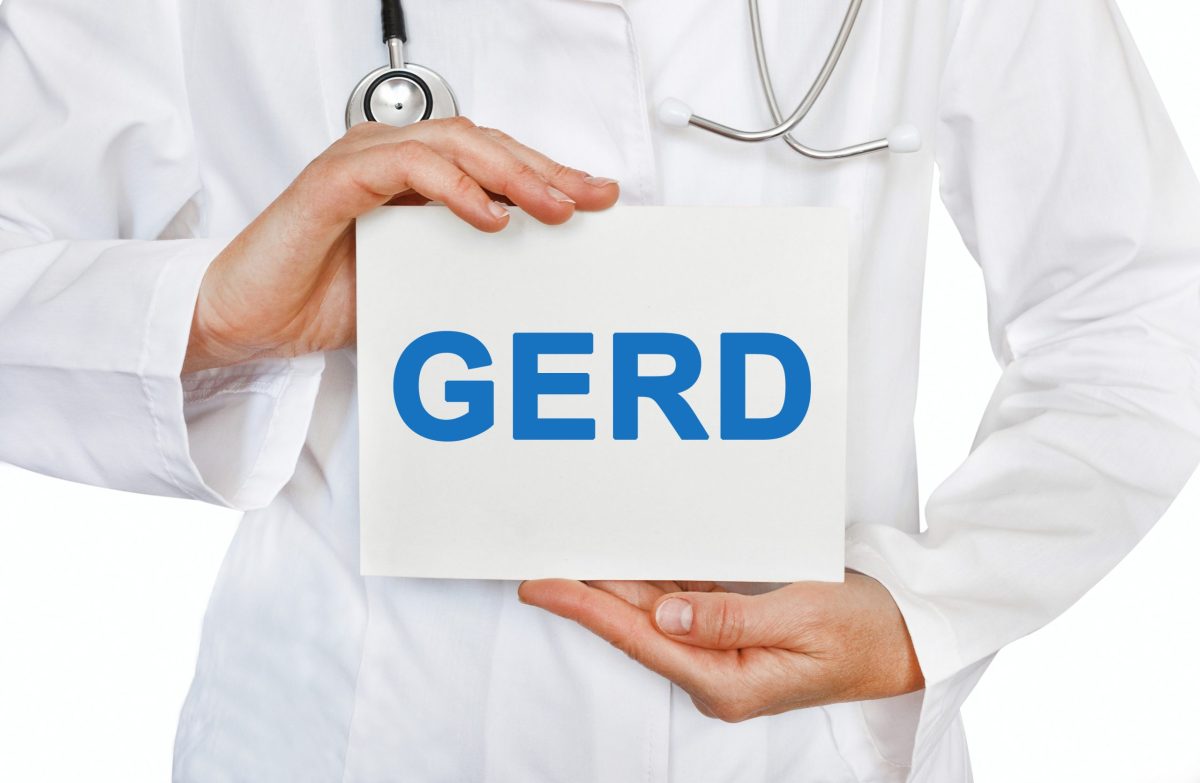The menstrual cycle prepares your body for pregnancy, and if you don’t get pregnant, your uterus sheds its lining resulting in menstruation. This process repeats itself each time you have your period. Many people experience menstrual issues like painful or heavy periods and premenstrual syndrome (PMS). You may be surprised that heartburn can also be a common symptom before your period.
Experiencing heartburn at any point in the month can be uncomfortable, especially during a premenstrual time when you may already be dealing with cramps, mood changes, and fatigue. This article will discuss the causes of heartburn before a period and how to deal with it.
What is Heartburn?
Heartburn is a pain that feels like a burning sensation located behind or below your breastbone and typically originates from the esophagus. The pain usually moves from the stomach into the chest and may extend to the neck or throat.
Heartburn is caused when stomach acids travel up your esophagus, a tube leading from the throat to the stomach. This could cause burning sensations in your chest or an acidic taste in the back of your mouth. Heartburn can be triggered by certain foods, medications, or even stress.
The heartburn that is linked with PMS is very similar to regular heartburn. It causes a burning feeling in the chest area after eating and can also be felt when reclining or bending over. Symptoms may also include nausea, belching, and a swollen abdomen.
Heartburn Causes and Symptoms
Here are the causes and symptoms of heartburn.
Causes

PMS can cause abdominal bloating and hormonal changes that may relax the esophageal sphincter muscles, the closure between the esophagus and stomach. This can lead to backflow of food, liquid, and stomach acids, which can irritate the esophagus and cause a burning sensation known as heartburn.
The role of stomach acid and the lower esophageal sphincter (LES) in heartburn is essential. Typically, the LES closes tightly to prevent stomach contents from entering the esophagus. When it relaxes, stomach acid refluxes up into the lower part of the esophagus and causes heartburn.
If the LES is not functioning properly, it can cause GERD (gastroesophageal reflux disease), increasing the likelihood of developing metaplasia and esophageal adenocarcinoma. Identifying any esophageal disorders for the patient’s well-being is crucial, as this can affect their quality of life and long-term health outcomes. Other possible causes of heartburn before a period include hormonal changes, stress levels, diet choices (such as spicy or acidic foods), and eating large meals.
Symptoms
Heartburn is a burning sensation in your chest because acid burns your esophagus. This is because your esophagus, which starts at your throat and goes down through your chest to your stomach, is affected. Although heartburn begins in your esophagus, the sensation can sometimes extend to your throat, ranging from mild to severe.
Heartburn symptoms typically include a painful burning sensation in the chest, often after eating and possibly at night, and increased discomfort when lying down or bending over. Additionally, the mouth may have a sour or acidic taste.
Hormonal Changes and Heartburn
Before your period, your body undergoes hormonal changes that can cause imbalances and lead to food cravings. Low blood sugar may also contribute to these cravings, causing a desire for high-fat and high-sugar processed foods. While cravings are a natural response, resisting giving in to them is crucial. Eating these types of foods can worsen heartburn symptoms because they relax the oesophageal sphincter.
Understand and Regulate Hormones
There are methods to help you overcome cravings and unhealthy food choices. Additionally, you can work towards understanding and regulating your hormones. It is crucial to identify the reasons behind your cravings and not be too hard on yourself. With this knowledge, you can focus on making successful changes.
During pregnancy, higher levels of progesterone can cause the oesophageal sphincter to relax, which increases the risk of heartburn. Higher levels of progesterone before your period may also cause premenstrual heartburn, but it’s not certain, as other hormonal factors may be at play.
How Common Is Heartburn Before Period?

While occasional heartburn is not harmful, experiencing it frequently could signify more severe health issues like gastritis or GERD. Roughly 10 percent of Americans experience heartburn regularly, while about 50 percent of pregnant women experience it daily. For another 30 percent of people, heartburn is an occasional inconvenience.
Heartburn often occurs in the days leading up to menstruation due to hormonal changes, stress, or dietary choices. Pregnant women should avoid eating spicy, greasy, and fatty foods that commonly cause heartburn. Due to slower digestion during pregnancy, overeating and having large meals also increase the risk of heartburn. Eating before bedtime and smoking exacerbate heartburn, so it is advisable to quit smoking during pregnancy.
How to Stop Heartburn During a Period?
It’s important not to overlook heartburn. Due to this, you should know how to stop heartburn during a period. You can try several things to soothe your stomach before seeking medical attention. These steps can alleviate your symptoms and potentially avoid more serious issues. The treatment for heartburn caused by PMS is similar to standard treatment for heartburn.
Antacids
To alleviate mild heartburn, use antacids that contain calcium carbonate or magnesium as they effectively neutralize stomach acid, and some can even prevent acid reflux or treat stomach ulcers. They are available in liquid and pill forms and work quickly.
Be mindful that antacids may cause constipation or diarrhea, so choose brands that include calcium carbonate, magnesium hydroxide, and aluminum hydroxide to alleviate these side effects. Avoid antacids with magnesium if you have chronic kidney disease. Additionally, some antacids may contain a high amount of salt and, as such, should be reserved for treating occasional heartburn only.
Proton-Pump Inhibitors (PPIs)
PPIs are medications that lower the amount of stomach acid to prevent frequent heartburn more than twice a week. They can be taken for a long time. PPIs can be obtained over the counter or with a prescription, but individuals with GERD may require stronger prescription medication if stomach acid flows back into the tube that connects the stomach and mouth.
It is recommended to take PPIs on an empty stomach once a day for optimal results. It is usually taken in the morning, about 30 to 60 minutes before having breakfast, to manage stomach acid. If you take clopidogrel, a drug that prevents heart attacks and strokes, consult your doctor before taking omeprazole PPI. The combination of both medications will decrease the effectiveness of clopidogrel.
H2 Blockers
H2 blockers are a medication that can help with heartburn by reducing the amount of acid your stomach produces. They offer better relief than antacids, even though they work slower. Your doctor may recommend taking both an antacid and an H2 blocker. It’s important to note that H2 blockers are meant for short-term use, up to two weeks. They can be taken before meals or bedtime and are available in liquid and pill form.
If you have tried one H2 blocker for your heartburn and it hasn’t helped, switching to a different one probably won’t make a difference. However, asking your doctor about a stronger prescription version of the same drug might be helpful. Talk to your doctor if over-the-counter H2 blockers aren’t working for you.
How to Manage Heartburn Before a Period?
Before you experience heartburn, you should take steps to minimize your risk. Here are some tips on how to manage heartburn before a period:
Lifestyle Changes
Here are some lifestyle changes you should make to manage heartburn before a period:
- Lose Weight – If you have excess weight, consider losing it. Being overweight can increase pressure on the stomach and the LES.
- Avoid Lying Straight on the Bed – To ease nighttime heartburn, use a wedge-shaped cushion to raise your torso and reduce pressure on the LES. You can purchase wedges from medical supply companies. Avoid propping up your head and shoulders with pillows, as it can worsen your reflux.
- No Physical Activity Right After Meals – It’s best to wait a few hours after eating before exercising to allow your stomach to empty. Avoid exercising immediately after meals.
- Check Your Medications – To avoid making acid reflux worse or inflaming your esophagus, check with your doctor or pharmacist about any medications you’re taking. Some medicines, like amitriptyline and doxycycline, can affect your LES or cause inflammation.
Dietary Modifications
Here are some dietary modifications you should do to manage heartburn before a period:
- Eat Smaller Meals – When you have a full stomach, it can create pressure on the LES, which is a muscle valve that prevents stomach acid from flowing back up into the esophagus.
- Eat Slowly – Eating quickly can make you feel full faster and put extra pressure on the LES, increasing the risk of acid reflux. It’s best to stay upright after eating instead of lying down, as lying down can increase pressure on the LES and make acid reflux more likely.
- Chew Sugarless Gum After Meals – To help ease heartburn after a meal, consider chewing sugarless gum. This can increase saliva production, which helps to neutralize stomach acid and soothe the esophagus. It can also wash any acid back down into the stomach. Just be sure to avoid peppermint flavors, as they may trigger heartburn.
- Avoid Food That Trigger Heartburn – You should identify which foods cause your heartburn symptoms and avoid them. Certain foods and drinks can worsen heartburn by increasing acid production, slowing stomach emptying, or relaxing the LES.
- Avoid Midnight Snacks – To avoid worsening reflux and heartburn symptoms, it is recommended not to eat anything three hours before going to sleep. This allows enough time for the stomach to digest food.
- Avoid Carbonated Drinks – It’s better to avoid carbonated drinks because they can make you burp, increasing the chances of stomach acid flowing back into your throat.
Over-the-Counter and Natural Remedies for Relief
The efficiency of different home remedies for soothing heartburn varies among individuals. Acid reflux, which is also known as heartburn, can be relieved through home remedies, including:
- Apple Cider Vinegar – Apple cider vinegar can help alleviate heartburn. Simply mix three teaspoons of it in a cup of water and drink it before meals or bedtime, although be prepared for the unpleasant taste.
- Baking Soda – You can use natural and affordable baking soda to neutralize the acid. Mix one teaspoon of baking soda with a cup of water. However, if you are on a low-sodium diet, it is recommended to consult with your doctor first since baking soda contains sodium.
- Aloe Juice – You can find aloe juice in most grocery stores. Aloe vera is known for its ability to calm skin sunburns; aloe juice can relieve acid reflux irritation. If you experience heartburn frequently, drinking half a cup of aloe juice before meals is recommended to soothe your stomach and esophagus.
- Eat a Banana – Eating a banana every day can help counteract acid reflux. Bananas have natural antacids. If you don’t have a banana, an apple can also help.
When to Seek Medical Advice?
If you experience heartburn more than twice a week, have symptoms that don’t go away with nonprescription medications, have difficulty swallowing, persistent nausea or vomiting, or have weight loss due to poor appetite or difficulty eating, please schedule an appointment with your healthcare provider. If you experience severe chest pain, pressure, pain in your arm or jaw, or difficulty breathing, it could be a sign of a heart attack. Seek immediate help.
Heartburn Prevention Tips and Self-Care

By following these tips, you can help prevent and reduce heartburn symptoms.
- Avoid foods that cause heartburn, such as caffeine, chocolate, peppermint, fatty or fried foods, garlic, onions, tomatoes, and tomato products.
- Eat slowly and chew food thoroughly before swallowing it.
- Don’t lie down after eating; wait at least two to three hours before lying down.
- Avoid tight clothing, especially around the waist or abdomen.
- Quit smoking if you are a smoker.
- Lose weight if needed, as obesity can increase pressure on the stomach and weaken the LES.
FAQs
Here are some frequently asked questions about heartbreak before a period.
Why do I get heartburn before my period?
Elevated progesterone levels might cause premenstrual heartburn, although other hormones could also be involved. Moreover, stress and food preferences might play a role in experiencing heartburn before the menstrual cycle.
Can your period cause indigestion and heartburn?
Yes, during your period, hormones can cause the oesophageal sphincter to relax and increase your risk of indigestion and heartburn. Eating a healthy diet, avoiding food triggers, and making lifestyle changes can help prevent these symptoms.
How do you stop PMS heartburn?
Antacids, H2 blockers, and PPIs can help reduce heartburn symptoms. These medications work by decreasing the amount of acid your stomach produces.
What is reflux menstruation?
Reflux menstruation is a type of heartburn that occurs before and during a woman’s period. It is caused by hormones, stress, or dietary choices and can be managed through lifestyle modifications.
Heartburn before a period is a common occurrence for many women. To reduce the symptoms of this condition, it’s essential to make changes in lifestyle and diet, such as avoiding food triggers and quitting smoking if you are a smoker. Antacids, H2 blockers, and PPIs can also help relieve heartburn symptoms. If your heartburn persists or worsens despite these measures, be sure to seek medical attention from your healthcare provider. With the right precautions and treatments, you should be able to keep premenstrual heartburn under control!




